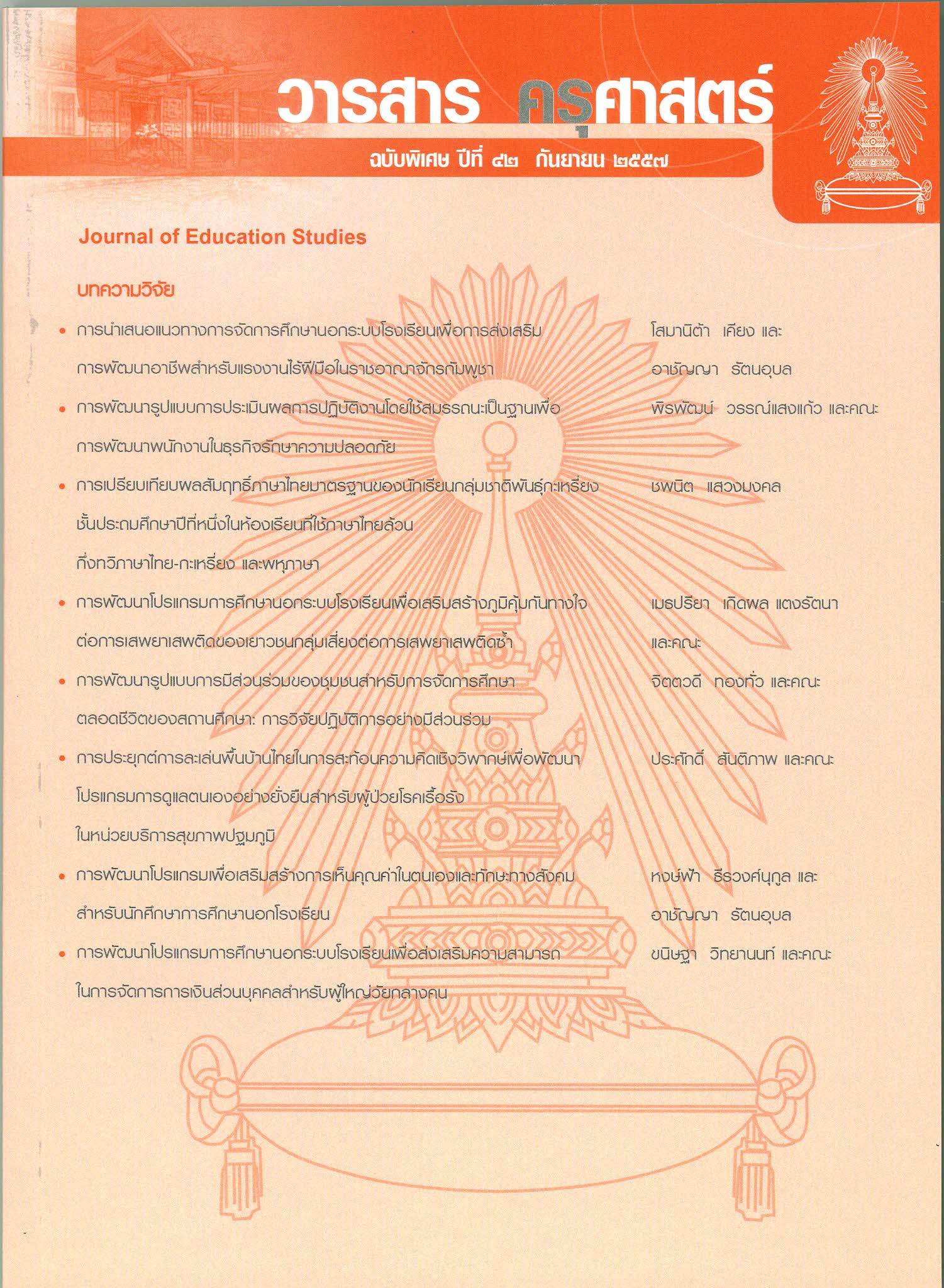The Development of A Program to Enhance Personal Financial Management Knowledge, Understanding, and Skills for Middle-Aged Adults
Keywords:
NON-FORMAL EDUCATION PROGRAM DEVELOPMENT, PERSONAL FINANCIAL MANAGEMENT, GAGNE INSTRUCTION MODEL, DIFFERENTIATION INSTRUCTION MODELAbstract
The four objectives of the development of a non-formal education program to enhance personal financial management knowledge, understanding and skills for middle-aged adults are to: 1) study the stage, problem, and learning needs in personal financial management for middle-aged adults; 2) develop a non-formal education program to enhance the knowledge, understanding and skills of personal financial management for middle-aged adults; 3) study the results and effects of the non-formal education program that will enhance the knowledge, understanding and skills of personal financial management for middle-aged adults; and 4) analyze the success factors and obstacles that will affect the use of the developed program.
The findings of this study were as follows: 1) the majority of the sample had low income. They had no savings and had never recorded their expenditures. Therefore, almost all of them could not analyze their financial problems and they lacked the knowledge, understanding and skills in using financial planning tools. In terms of learning needs, the sample wanted to learn the sufficient cash management topic at the highest level and personal financial planning topic at a high level. Also, they wanted learning activities that were in line with their required contents, especially the sufficient cash management topic more than any other; 2) the developed program contains 11 learning units operated under the çJeejud-Chudyongyai-Roajai-Saikunkhaé process that comprised 49 hours of in-class activities and 51 hours outside-classroom activities for a total of 100 hours. There were also four additional brain-break activities; 3) the experimental results showed that the developed program was able to enhance the knowledge, understanding, and skills in personal financial management for learners. Subjectsû posttest scores were significantly higher than the pretest scores at a .05 level of significance in all four areas of personal financial management. The experimental group attained learning outcomes in all areas of personal financial management; 4) the success factors of program implementation were: (1) Valuable experiences of student group; (2) Making differential instruction to respond to learner diversity; (3) Learning activities according to the çJeejud-Chudyongyai-Roajai-Saikunkhaé process; (4) Brain-break activities that enhance long-term memory; and (5) Supportive learning environment. However, the obstacles of program implementation included: (1) Limitation of studentsû mathematical ability; (2) Readiness of students in their supportive attitudes towards some brain-break activities; and (3) Time constraints influencing the learning outcomes of students.




